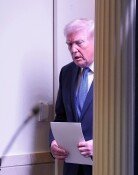[Opinion] The Language of Publication
[Opinion] The Language of Publication
Posted September. 29, 2007 03:43,
In the global economy, it is all about competition for intellectual property. Advanced countries that have accumulated intellectual property in abundance are protecting their domestic companies with various intellectual property strategies while building up invisible barriers to foreign companies. Despite such high barriers, Korea has become worlds fourth largest power in intellectual property. Under the Patent Cooperation Treaty (PCT) standard set by the World Intellectual Property Organization (WIPO), the number of patents applied for last year was 5,935, fourth in the world following the U.S., Japan and Germany.
Welcome news has come from Geneva that Koreas strength in patents is being acknowledged internationally. In the 43rd WIPO general assembly, the Korean language was added to the list of languages of publication for international patent applications. Language of publication is official language used in the patent realm to let the world know about the technologies applied for in the patent-granting process. So far, the list of languages of publication included English, French, German, Japanese, Russian, Spanish, Chinese and Arabic. Korean and Portuguese have just been added. This is the first time Korean has become an official language in an international organization under the U.N., let alone unanimously agreed by 183 WIPO member countries. It makes us proud that Koreas patent strength has been acknowledged. It is even more fulfilling because the achievement was made in this era of globalization where language can determine the competitiveness of a country.
It is easy to think that patents give a preference to the inventor of technologies. However, it is too difficult to decide who first developed a certain technology. So advanced countries in the West, where trade takes a large share in the economy, met in Washington in 1970 and decided to grant patent priority to the first to file a patent application rather than to the first to invent a technology. The International Bureau of the WIPO posts on its website and publishes internationally all the patent applications from various countries by date. By doing so, it prevents overlapping investment and provides real-time information to those working in industries related to international trade, patents and invention.
From now on, Koreans who want to apply for international patents no longer need to spend several million won on preparing additional documents translated in English. As the time and cost for patents have reduced, the number of Korean international patent applications will only grow. Since publications have become much easier to file, Koreans can be less worried about idea theft by others. When a country gets stronger, the life of its citizens improves in various ways.
Huh Moon-myeong, Editorial Writer, angelhuh@donga.com







